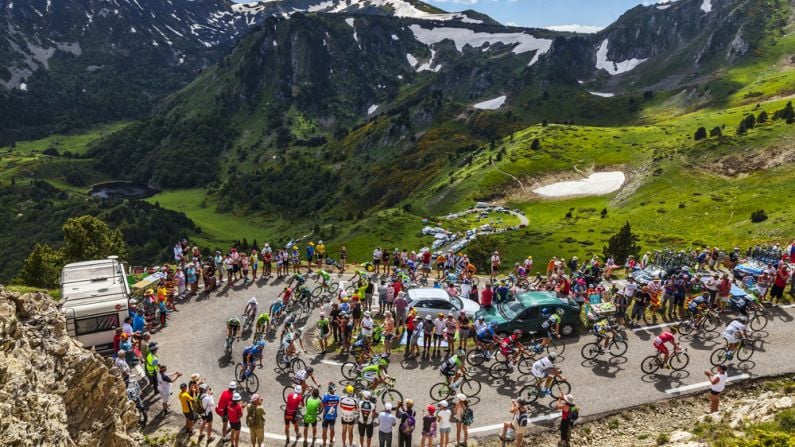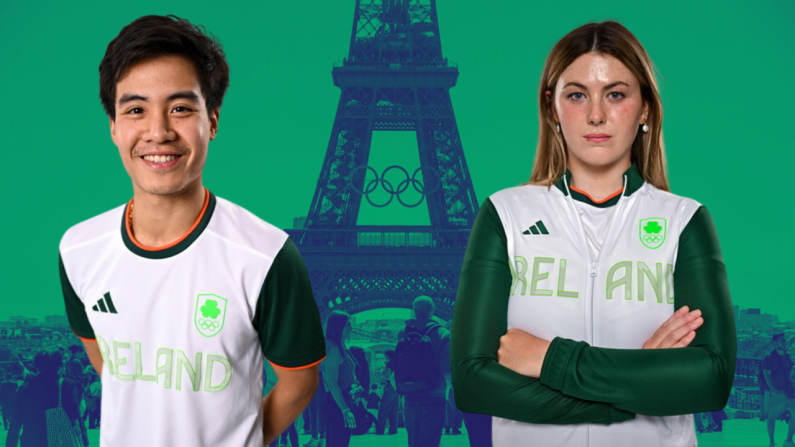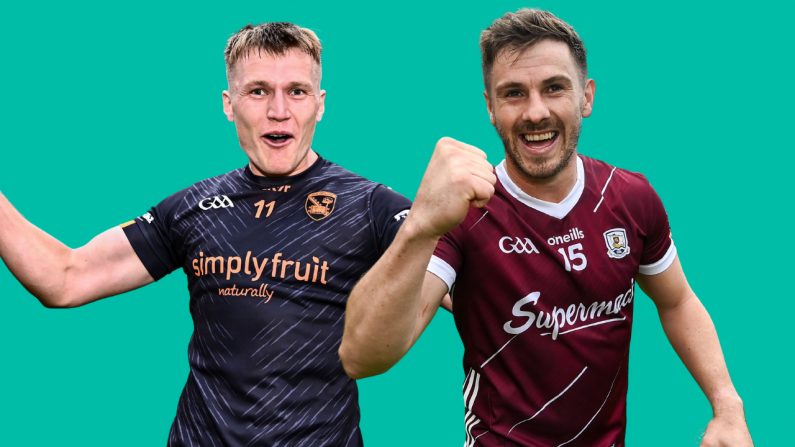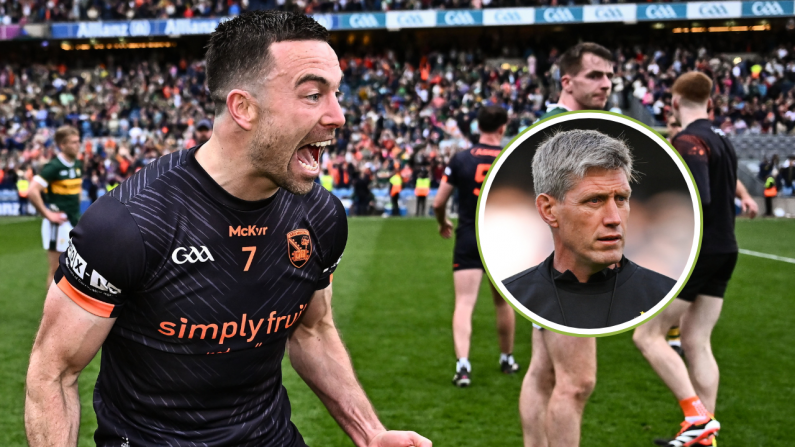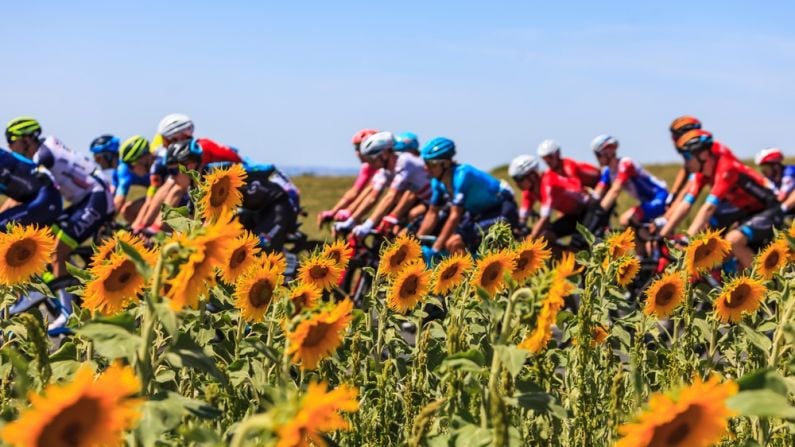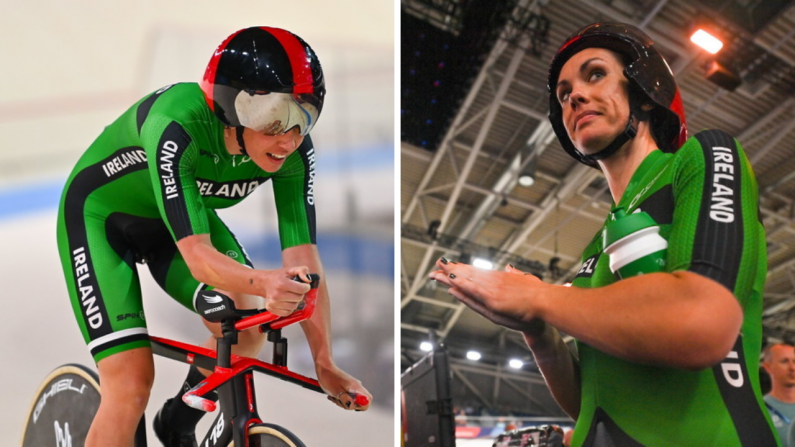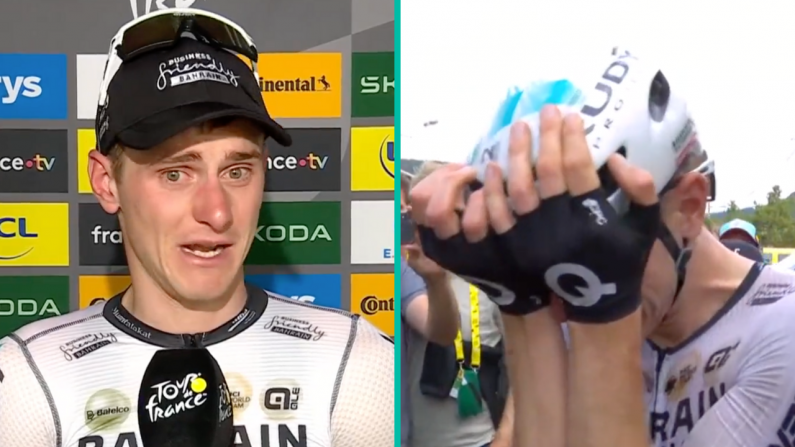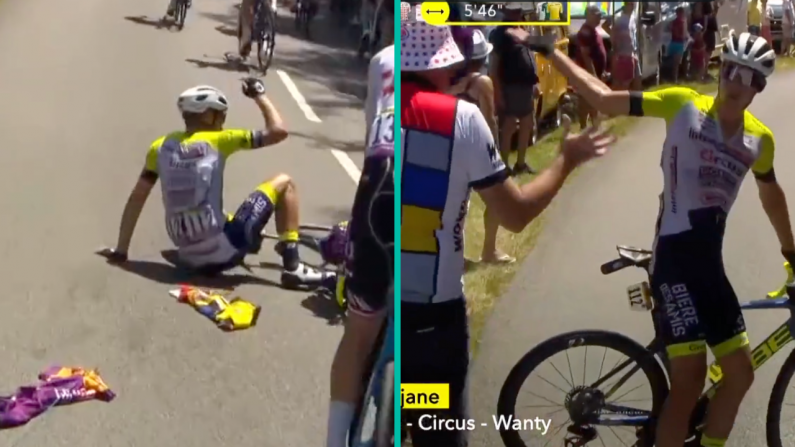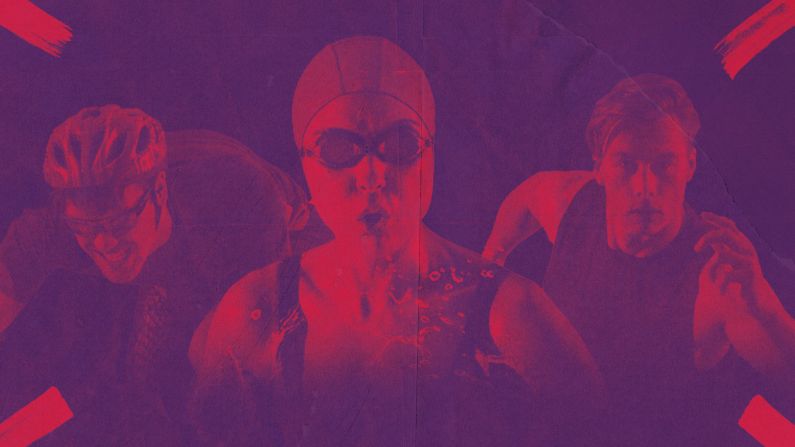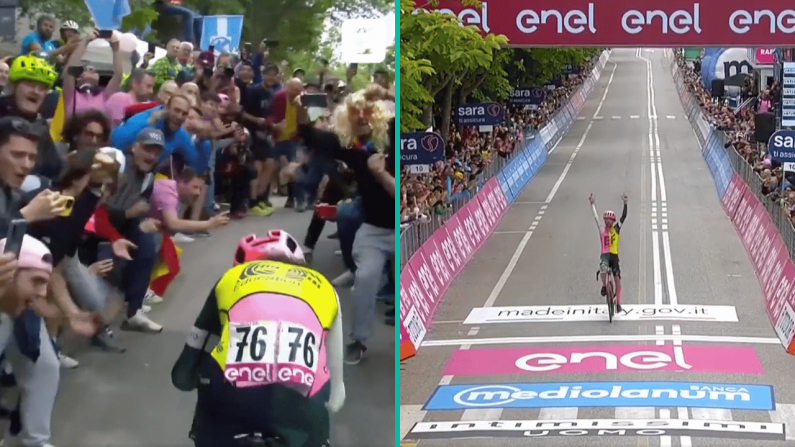The Tour de France is massive. It has legitimate claims to be the world’s biggest annual sporting event. Over its 21 days of racing, millions will line the streets of France (and surrounds) to cheer on their favourites and boo their rivals.
This guide isn’t for those with a burning passion for the sport and who can speak for hours about big rings and little rings, aero-based helmet choices and how radio-based communications have diluted the racing. This is a guide for those of you who’ll have a passing interest in cycling’s biggest event and want to understand what’s happening a little more clearly.
Who wins the Tour De France?
There’s 21 stages in the Tour de France. There’s one time-trial – where they start seperately against the clock – and 20 mass start stages. Those 20 mass start stages – called road stages – can take different forms. There’s flat stages where they’re likely to finish in a big bunch – called the peleton – and stages that finish 2,000m above sea level in the very steep mountains where the riders might finish solo or in small groups. The winner of the Tour de France is the cyclist who completes all stages in the least combined time. The person at the end of each stage with the lowest combined time at that point wears the famous yellow jersey – la maillot jaune – the following day.
So there’s only one prize?
No, first to cross the line each day wins the stage and that in itself is very prestigious. There are cyclists who may struggle to get over the big mountains but have fast explosive finishes – called sprinters – who’s team will work for them so they can win the stage from the peleton. Ireland’s Sam Bennett won two stages as a sprinter in 2020. Other riders are climbers. They can struggle in the fast flat stages due to their small size, but can fly up mountains while the big sprinters struggle. Recently the puncheur has emerged. These are cyclists like Dutchman Matthieu Van der Poel who can climb better than sprinters, and sprint better than climbers. There’s also riders who specialise in day-long breakaways.
So is Sam Bennett or any other Irish in it this year?
No, unfortunately Sam wasn’t selected by his team this year. He had been pencilled in for the Tour but a lack of form, combined with team priorities going elsewhere meant he, and team-mate Ryan Mullen, weren’t selected. Eddie Dunbar was 7th in the Giro D’Italia – the second most prestigious Grand Tour while Ben Healy won a stage in Italy. It is unusual for riders to follow the Giro with a Tour if they have targeted success in the Giro (as both successfully did). Danish rider Christoper Juul-Jensen was born here and speaks with an Irish accent but it’d be fairly hypocrites to call him Irish now… So Irish participation this year is limited to the boys on TG4 and Orla Chennaoui and Sean Kelly on the Eurosport/GCN/Discovery + coverage.
It’s on TV?
Yep, every day for hours and hours. Each road stage in the Tour de France is between 140km and 210km. They can last between 4 and 6 hours usually. Every second of that race is live on TV. TG4, ITV4 and Eurosport all provide broadcast and streaming coverage. You’ll get nightly highlights and post-race analysis too. The Tour de France is perfect background TV if you’re working from home with most days having tourist-baiting footage from France and it’s neighbours?
The Tour de France isn’t just in France?
Every two years, the Grand Depart – the opening stages of the race – take place outside of France. Competing regions bid for the right to host it knowing how many people, particularly in Europe, watch it. Ireland hosted in in 1998. This year it’s Bilbao and the Basque Country. They’ve three days there before entering France. These aren’t ceremonial stages either. The racing will be on right from Day One.
Aupa Bilbao!
À demain! 👋 See you tomorrow!#TDF2023 | @letour_euskadi @bilbao_udala pic.twitter.com/qkrxn0njvP— Tour de France™ (@LeTour) June 30, 2023
One winner means it’s just an individual sport, yeah?
This is the biggest misconception about the sport. While the Time Trial races are cyclist v clock, the road stages are team versus team. A standard flat day in the Tour de France will see a group of riders break away from the peleton early and race ahead of the rest. After it settles, the sprinters teams will work together to reel them back in, leaving enough men to lead out their sprinters in the race for the line. A stage win might not be possible for one man without the rest of this 8 man team working for him. These riders aren’t there to win, they are there to ride in support of the team’s aim. They’re call “domestiques” – if you want to really impress someone, you could call them a “gregario” as the Italians do.
In mountainous stages, a team might use it’s “roleurs” – strong domestiques good on flat or rolling terrain to control things before using climbers or “super-domestiques” to help launch the team captains for attacks that could decide the overall race. Stages in the mountains usually decide who wins the Tour de France and all the favourites are excellent climbers.
Who are the best climbers?
The team leaders are the best climbers but there’s a prize for the “best
climber” with points on offer over every mountain where the leader where’s the Polka Dot jersey that sometimes goes to a very good climber who races in breakaways to win points. Looks for the tiniest guys in the peloton, they’re likely to be involved in the race for the King of the Mountains prize. The team leaders won’t bother racing for these points but may be too good in the mountains and pick it up by default.
And is there a prize for the best sprinter?
Yes, well, kind of. The Green Jersey is for the winner of the Points Classification. Points are awarded to the first few riders across the finish line every day and to the first few riders across specified “intermediate points” along the route. Generally, it is sprinters who go for this prize but as points are awarded on non-sprint finishes, consistently strong riders can win the Green Jersey too. While Ireland only had one winner of the Yellow Jersey – Stephen Roche in 1987 – we have won the Green jersey five times. Sean Kelly in 1982, 1983, 1985 and 1989 and Sam Bennett in 2020. Bennett is a sprinter while Kelly was a much more rounded cyclist who won this jersey by being competitive in every type of stage.
Who are the favourites?
Last year’s winner is Jonas Vingegaard – a climber from Denmark for the Jumbo Visma team. He was second in 2021 when he came into the race as a super-domestique before his captain Primosz Roglic crashed. Vingegaard’s win last year was a bit of a shock as he beat the previously-thought invincible Tadej Pogacar – a super strong claimber/all rounder from Slovenia for UAE Team Emirates. Pogacar is still only 24 but had won the Tour in 2020 and 2021 before finishing second. He's remarkably still eligible for the White Jersey prize for "best young rider". Both of these riders are back by super strong teams and it will be a shock if the winner comes from elsewhere.
"I want to try and go for it again" 🏆
Defending champion, Jonas Vingegaard is raring to go! @j_vingegaard | @JumboVismaRoad | #TDF2023 pic.twitter.com/ll9VoO7ZEC— Eurosport (@eurosport) June 29, 2023
Most likely to compete for a spot on the podium are Jai Hindley (Australia/Bora Hansgrohe – winner of the 2021 Giro D’Italia), David Gaudu (France/Groupama-FDJ – 4th last year and the course effectively designed for him), Enric Mas (Spain/Movistar – 2nd at the last two Vuelta a Espana) and perhaps the rising star of Mattias Skelmose (Denmark/Lidl-Trek).
Any predictions?
Tadej Pogacar to attack constantly on small and large hills. He’ll win 3 stages but Jonas Vingegaard will win the highest mountain stage by 90 seconds and earn the overall title. Jesper Philipsen will win the Green Jersey and the final stage in Paris. Pello Bilbao will win the Polka Dot jersey and end up 30 minutes behind the winners one day in the mountains. The opening stage will be won by Julian Alaphilippe.
Enjoy the race!

